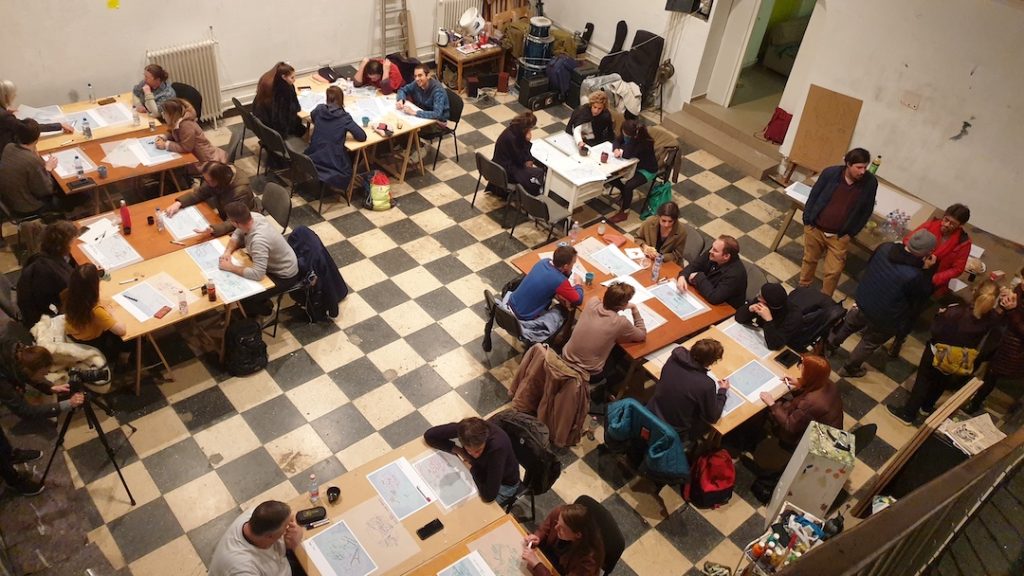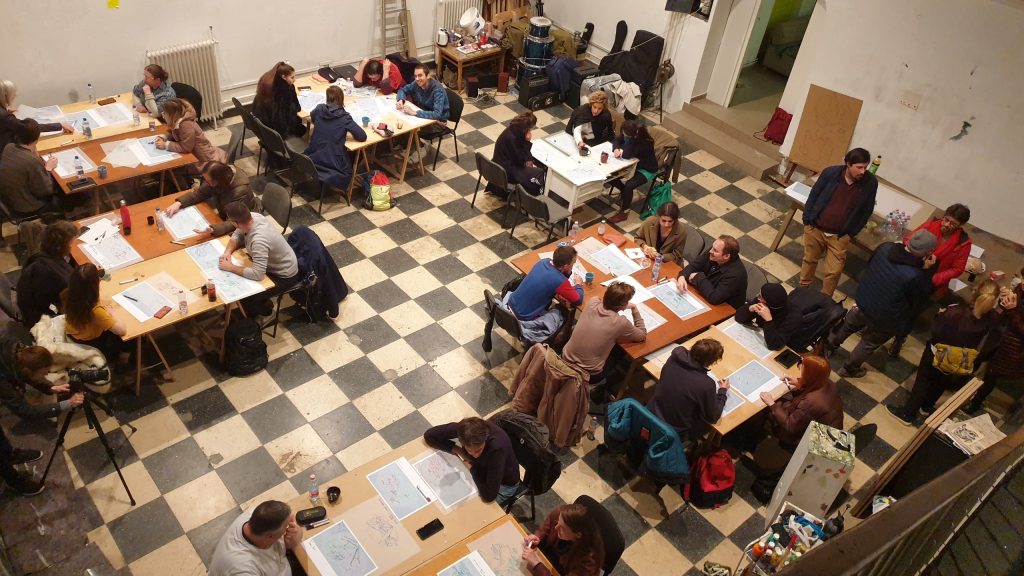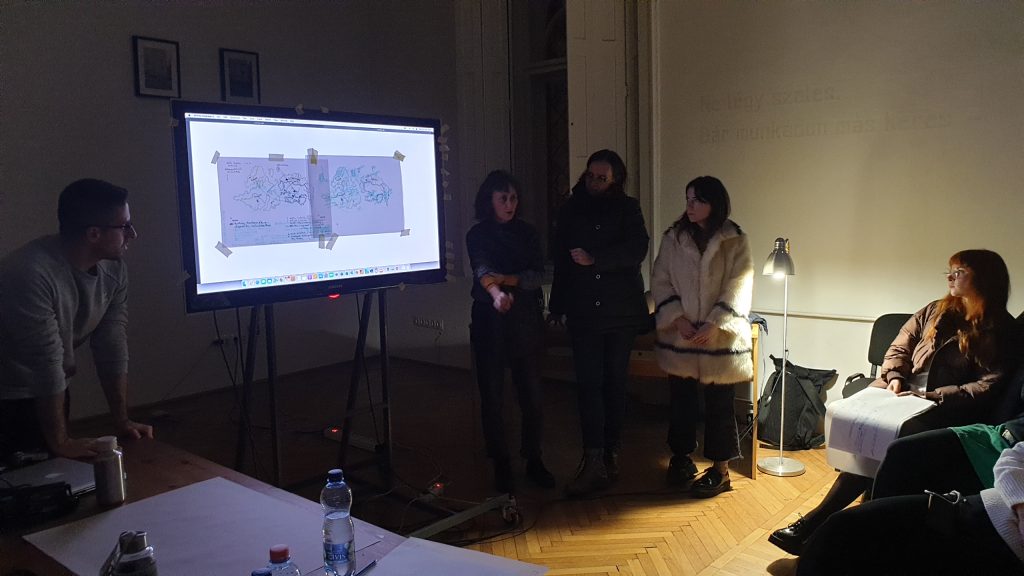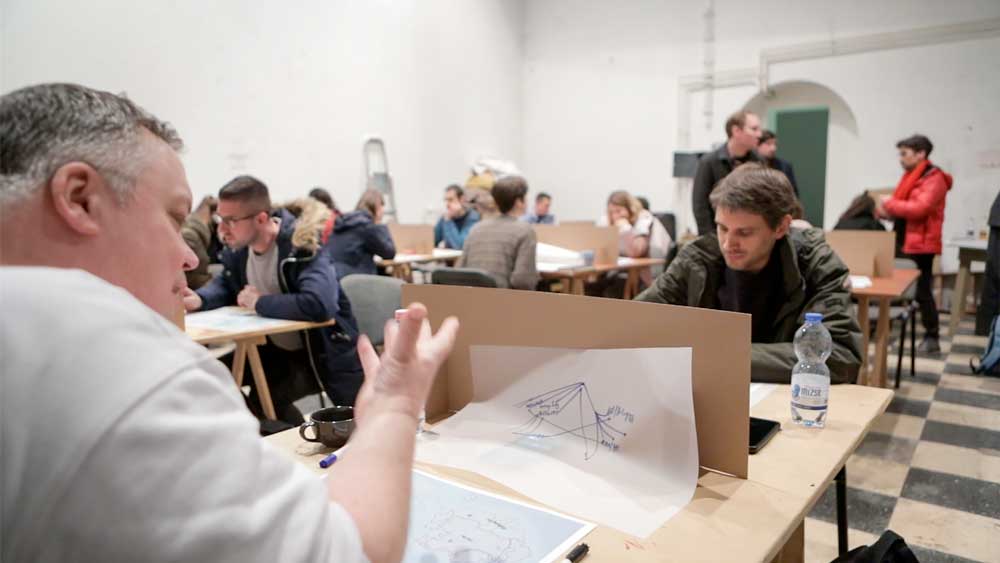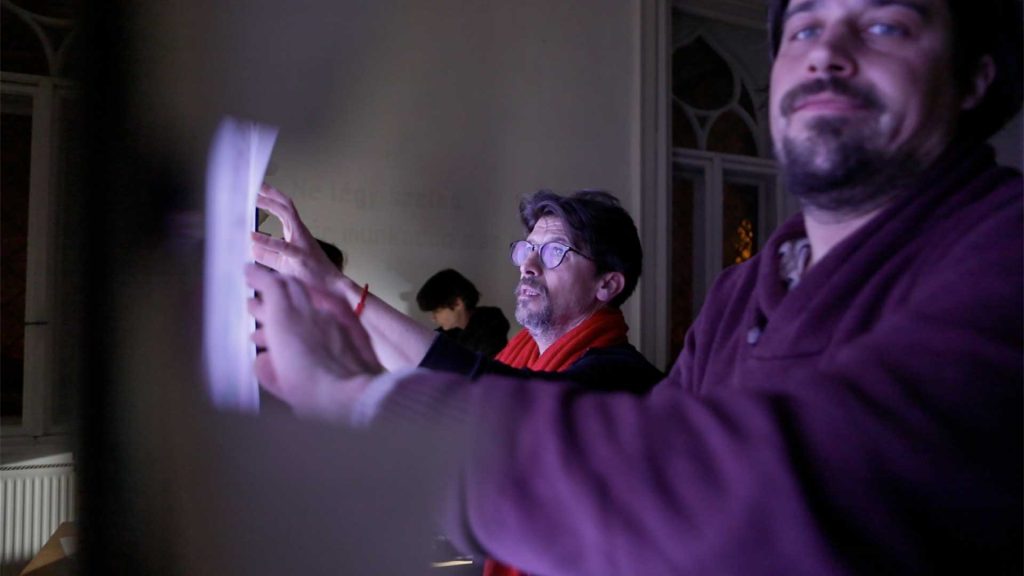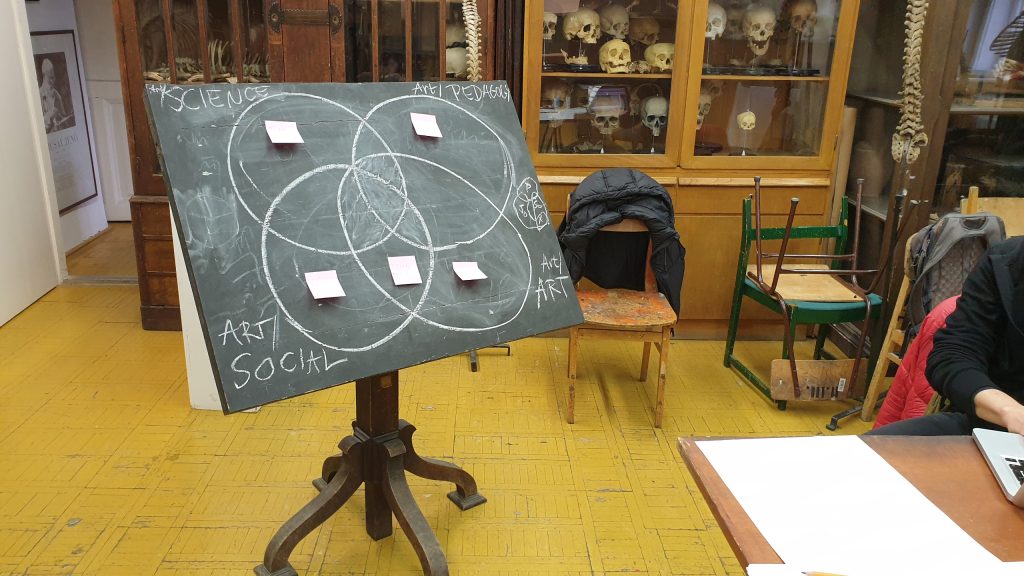
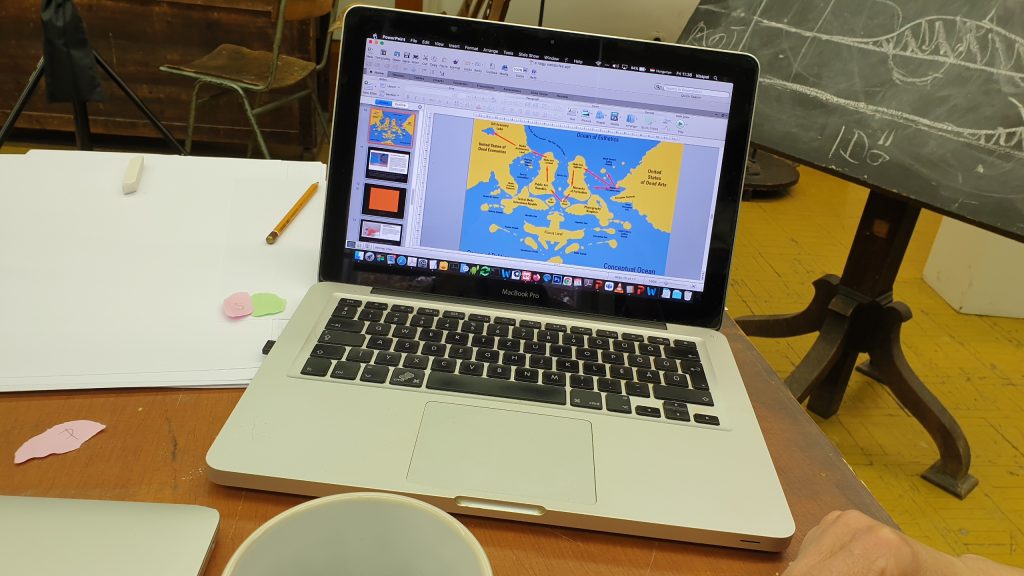
Pilot LAB, HUFA Doctoral School – Budapest,
15 November 2022
Gabriella Kiss, Assistant Professor – Scenography Department
Within the framework of the EU4ART_differences project, our task was to create an Artistic Research and Innovation Lab. The pilot project is aimed at giving the Lab a definition, which is a task we share in with the other universities involved in the research. Our objective was to create micro-communities and some space – in both the physical and the intellectual sense – that would allow students involved in the research at the undergraduate, postgraduate and doctoral levels to have some kind of communication between them.
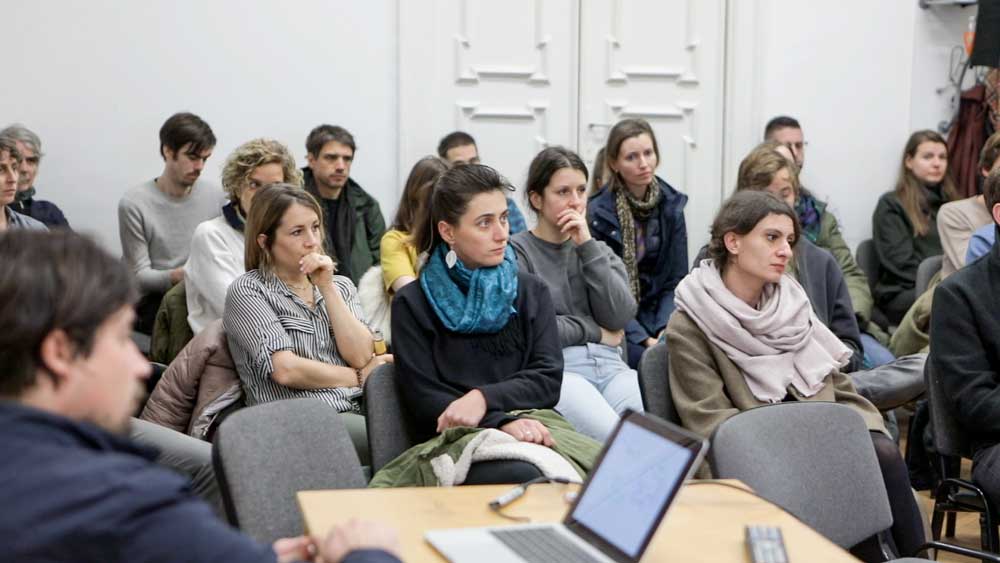
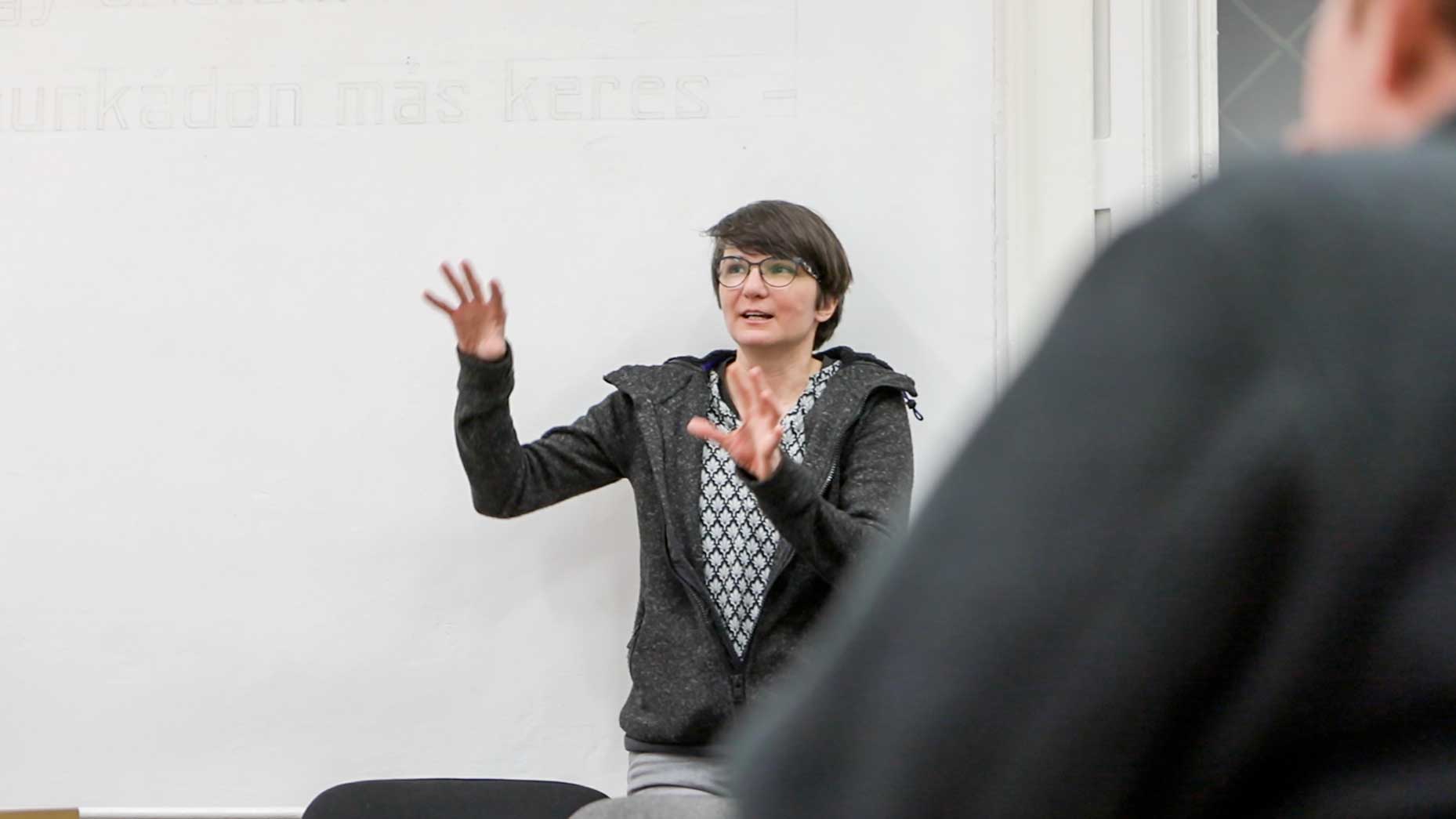
Szabolcs KissPál, Associate Professor – Intermedia Department
As for the methodology of the workshop, to create this lateral communication which would facilitate potential future collaborations, we decided to use the metaphor of travel. So, in essence, we defined the most diverse disciplines – from philosophy and social sciences to sustainability theories – as different areas on a map. We asked participants to try and mark their own path on this map. This opened the communication about the theoretical elements and details participants would use to lay the foundations for, and add to, their own research.
Mátyás Fusz, Assistant Professor – Artistic Anatomy Department
In this pilot workshop that we organized, we focused on talking about the research itself in the simplest possible terms, without slides, without presentations, in essence relying on one’s own descriptive abilities and powers to captivate the listener’s attention. First they worked in conversational pairs, where one person would share with the other what they were researching and working on. Then these groups were expanded, making them increasingly larger. From working in pairs, groups of four were formed, and so on, until we got to discussing the results of session together as a single group. The feedback also showed that participants were able to talk and even think about their research topic in a different way if instead of giving a lecture on it, they could engage in a private conversation about it. By using the mapping method in these discussions, they could playfully describe where they were in the research process, what areas they were touching on and what resources they were using.
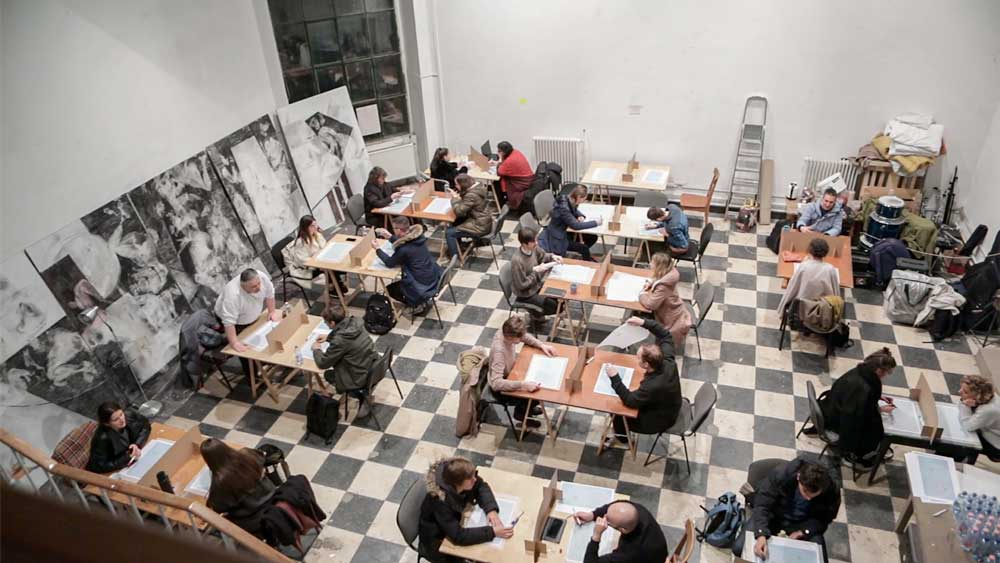
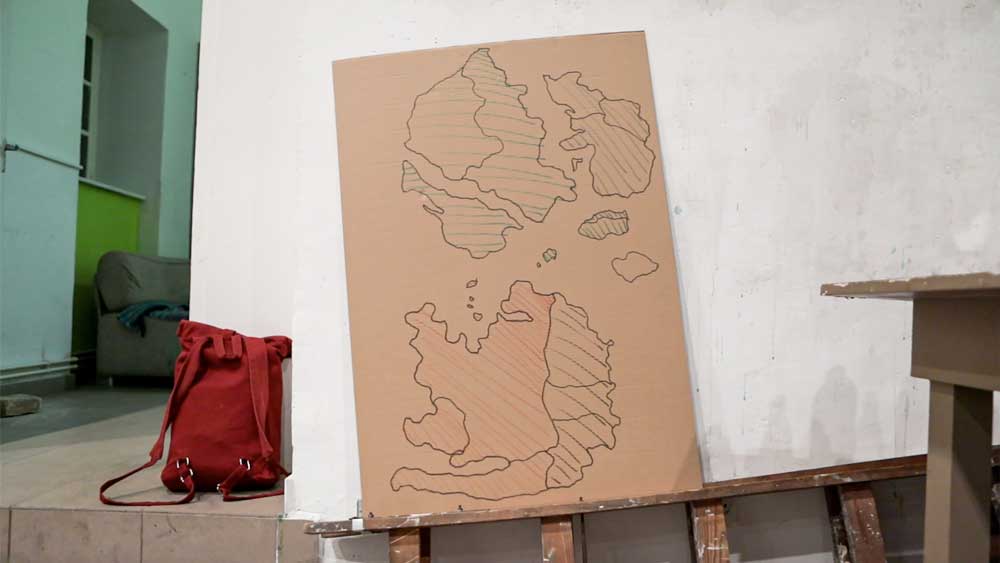
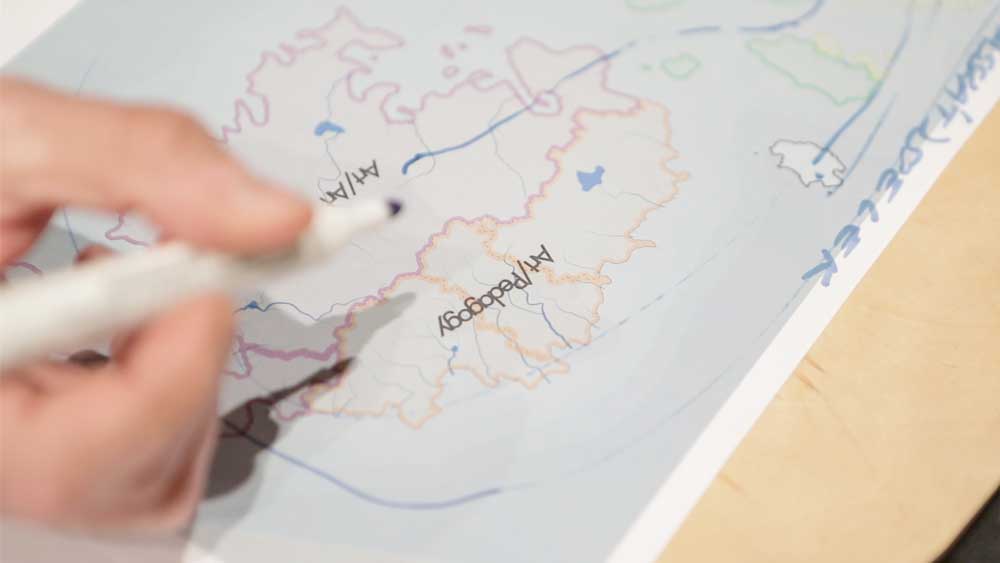
We were also curious to see what results would emerge when two people discussed their research topics together. Perhaps they would find that there were similarities or certain overlaps. Or they would conclude that they were working in completely different areas. There were examples for both scenarios, with some participants discovering that they could exchange knowledge and information to a degree where they would be able to form small research communities and inspire one another to continue the work.
Gabriella Kiss, Associate professor – Scenography Department
We plan to make this event the starting point for the block seminar that will be held in the Spring Semester of 2022/23. Students from partner institutions of the European University Alliance will also be able to join this seminar.
Project leaders:
Mátyás Fusz, Gabriella Kiss, Szabolcs KissPál
Participants:
Dániel Bencs, János Donnák, Apolka Erős, István Felsmann, Emese Fodor, Ádám Jeneseses, Bernadett Jobbágy, Kitti Harmati, Rita Horváth, Bence Kala, Judit Kis, Katalin Kortmann Járay, Alíz Kovács, Viola Dóra Lenkey, Daniel Máté, Mózes Márton Murányi, Vivi Papp, Zsolt Sőrés, Áron Szabó, Áron Szabó, Nóra Szabó, Gáspár Szőke, Anna Tóth, Vilmos Vagyoczki, Anna Zsámbéki
Special thanks to:
Ádám Albert, Balázs Kicsiny (head of HUFA Doctoral School), Eszter Lázár
